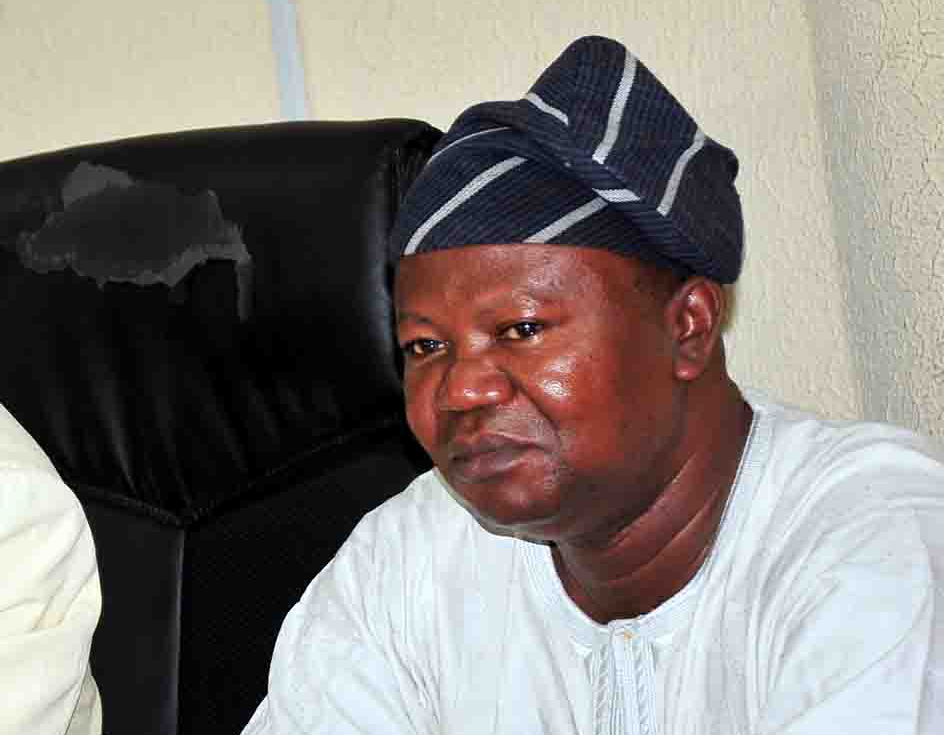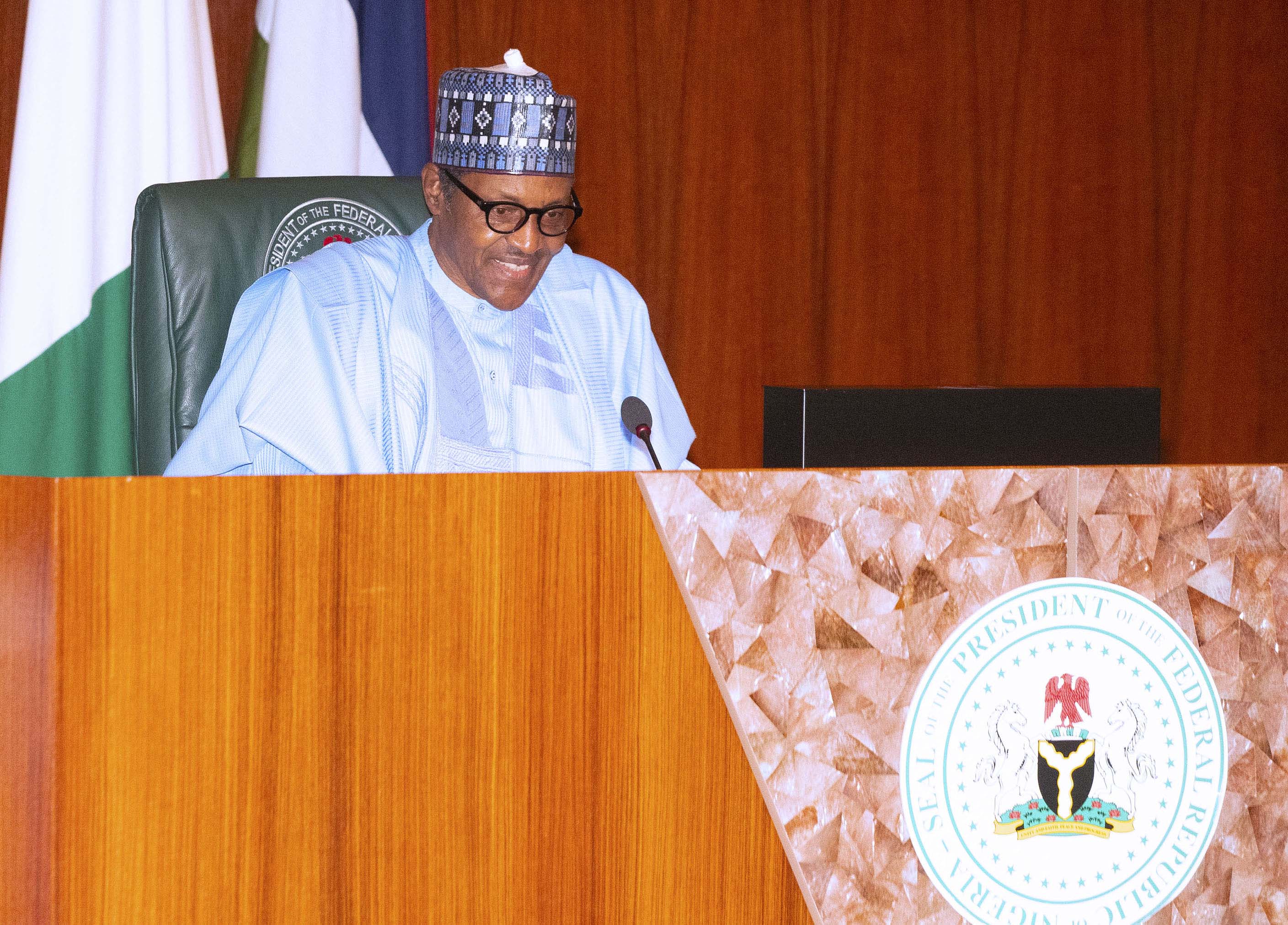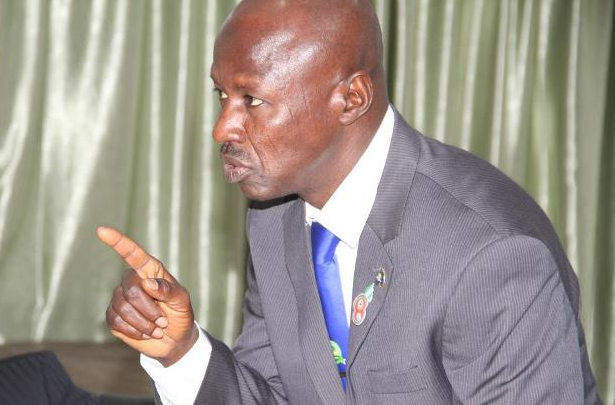Sometimes, when you think you have heard the worst about what is going on in Nigeria; that is just the beginning of contending with the unimaginable. One time, you hear the President’s wife telling the nation that she doesn’t know the whereabouts of her security aides, at another time; you read news report of shootings in the seat of power. As you are still wondering if this is some kind of plot in a blockbuster, almost immediately, a government aide confirms the shootings and at the same time describes the incident as minor. As a citizen, you know that there are obvious anomalies, but you have to figure out these things yourself. Our government does not think it owes us much explanation and because we are already used to being disrespected, we easily ignore some pertinent issues and simply move on. Perhaps, this is what the President of the Academic Staff Union of Universities (ASUU), Prof. Biodun Ogunyemi, expected us to do when he publicly declared that virtual learning cannot work in Nigeria now!
The ASUU president had told journalists that it would take time for Nigerian lecturers to deliver online teaching. His reason is that online delivery requires some special pedagogical skills and training, so lecturers would have to be re-oriented to do it. His words: “I am even focusing on tertiary institutions now because I don’t want to go to the lower level. So if you talk of tertiary institutions, the first thing is when they don’t have the skills; they will water down the quality in terms of content generation…. it is different from loading students with materials. Students should be able to digest what the lecturers are giving out and that also requires skills in preparation. Where they cannot digest, maybe at worst, it may just be garbage in garbage out because when you digest, you will be able to ingest and when you ingest, it becomes part and parcel of you and that is when you can apply.
“Many of us that teach in face-to-face arrangement we know the difficulties we face in explaining concepts, in illustrating presentations, so that dimension will be there. The quality in terms of content, in terms of presentation will be watered down. It (virtual learning) will not work. Let’s break it down; when you talk of virtual learning -practically online teaching and learning, I think the first question we need to ask ourselves is: do we have the infrastructure for that? When you talk of infrastructure in the institutions concerned, do they have facilities and if you want to take it to individuals, can they afford it?”
I’ve tried in vain to understand the exact point that the ASUU president is trying to make here. I also don’t think that the challenges confronting Nigeria in the area of virtual learning are so unconquerable to warrant such a definite verdict from the leader of Nigeria’s academic body. Is ASUU president telling us that Nigerian students are so slow in learning that they won’t understand concepts and presentations if delivered online? Perhaps, Professor Ogunyemi has a different definition of online teaching. Otherwise, online teaching as we generally understand it to mean is simply using electronic technology and media to deliver, support and enhance both learning and teaching. If this is the case, which of these elements can anyone say require a special innovation? Is it the electronic technology or the media? Nigeria does not need to come up with any special invention to offer online teaching neither is this thing a rocket science So, I don’t know why the ASUU president is giving the impression that Nigerian lecturers have to go to space to learn how to deliver online lectures.
Advertisement
The ASUU president may have to tell us what’s special about online teaching that makes him think it will take Nigerian lecturers, some of whom are among the best in the world, eternity to get reoriented to deliver it. I want to believe that the ASUU president was not speaking on behalf of the entire academic community on this. The Olabisi Onabanjo University professor is giving the world the impression that Nigerian lecturers are backward and behind their counterparts across the world and this is obviously not true. After all, many of these lecturers go for their sabbatical abroad and do well in universities that operate virtual teaching. Long time before COVID-19 pandemic, many institutions have been combining e-learning and face-to-face interaction. They have been deploying educational technology to meet the needs of their students. It is bad enough that Nigeria and its institutions are lagging behind others in this area; it becomes worse when the academic community is seen as deifying the problem.
The leader of Nigeria’s academic community should not be giving a negative verdict on virtual teaching at a time when some countries are working hard to achieve better online teaching and learning in practical courses like medicine, engineering etc. Universities are embracing education technology that allows the use of virtual patients to help teach their medical students the skills of diagnostic reasoning and patient management. There are even packages that allow students to take virtual history of their virtual patients using a bank of questions. These types of interactions are encouraged even when everybody knows that pointing a stethoscope to a virtual patient’s chest to listen is not likely to be of much benefit to a student. For how long do we want to continue to regurgitate the challenges against online delivery in Nigeria when solutions to the problems are starring us in the face every day? Honestly, by now, we should be taking steps towards solving our problems.
Imagine ASUU still complaining of migrating online when Cambridge University has moved all “face-to-face lectures” for the full 2020-21 academic session online. The other time ASUU faulted the virtual matriculation by the University of Osun, describing it as a charade. The union was convinced that the ceremony was a ploy to shut out poor students from accessing teaching and learning interaction. But these students have yet to complain. In fact, they are proceeding with their online classes in peace. This does not mean that the university is getting it completely right but that is also expected. Nigeria is not the only country in the world where there are barriers and constraints to the development and implementation of online teaching. Transition from traditional teaching to online learning usually has its own challenges even in the developed countries. They also have problems of poor technical skills, inadequate infrastructure, lack of institutional strategies and so on. The only difference is that governments and institutions in these countries are always seeking ways of finding solutions to their challenges. Their lecturers work towards providing better experience for themselves and their students.
ASUU has been on strike for more than three months. One cannot fault the union’s patriotic struggle to improve funding of public universities in Nigeria. Truly, the state of our public institutions is nothing to write home about. Our leaders seem too desperate to kill public universities as they did public primary and secondary schools. They don’t mind doing this because their children don’t attend these institutions. If not for COVID-19 and the attendant closure of many countries’ airports, we would have been regaled with photographs of our lawmakers, governors, ministers and other senior public officials and their children graduating from Ivy League universities abroad. Our leaders are shameless! They don’t mind stealing from Nigeria to develop other countries’ economies. Nigerians are spending an average of N173 billion per year to pay for studies in America alone. People spend so much to enrich universities abroad while our own universities at home are in a complete shambles. Nigerians pay foreign universities to subsidise the education of their citizens at the expense of Nigeria’s struggling poor. At the end of the day, these foreign countries still reserve their best job slots for their citizens and sometimes send Nigerians away to add to the unemployment market back home.
Advertisement
Agreed, Nigerian leaders have their catalogue of problems. But, ASUU could have used the so-called weak to non-existent ICT infrastructure in our universities for online teaching and in the process draw attention to the problem. Perhaps, government would have been forced to channel part of the donation for COVID-19 towards the delivery of online education in Nigeria. If ASUU is insisting on continuing with its strike, that is fine. But the academic union can at least prepare itself for the inevitable. Telling us that online teaching belongs to the future in present day Nigeria is hogwash. Babcock University is a Nigerian university. The university churned out a fresh batch of graduating students amid this pandemic. How many expatriates does Babcock have in its faculty? There is no point shooting down the online teaching method used by any university here. Who says everything the institutions abroad are doing is perfect? They also learn from their mistakes.
Universities are established to create solutions to societal problems. It is abnormal for the academic community that should have been at the forefront of providing solutions to the nation’s problems to publicly declare that a problem cannot be solved. Ordinarily, challenges ought to bring the best out of the lecturers. After all, the worth of managers is in their ability to manage crisis. We can no longer be talking about data cost as if it is an insurmountable issue. We have telecoms firms that give their subscribers as much as five times worth of data in all kinds of promos. Are we saying these telecoms firms cannot work out better arrangements for students and lecturers in our universities? Let’s face it. It would be a huge business deal for any telecoms firm that can work with any university to provide internet connectivity and other things relating to virtual learning. Until universities start this online teaching, they can’t know the possibilities therein.
I have said this before and it is worth reiterating. Universities in Rwanda, South Africa and Tunisia are partnering with internet providers to overcome the challenge of high data costs; they are negotiating zero-rated access to specific educational information websites. A university in South Africa, the University of KwaZulu-Natal and private universities like the Ashesi University in Ghana, are reportedly offering data bundles to their students and staff. If Nigeria is serious at all, the government should have deployed ICT to learning in its schools and higher institutions by now.
The lecturers cannot continue to sit on the fence and expect solutions to come. ASUU should be more concerned about delivering online teaching to their students. Ordinary primary and secondary school teachers in this country are already doing this with ease in spite of all the challenges. At least, Lagos State Commissioner for Education, Mrs Folasade Adefisayo, confirmed that at least 150 schools in the state are delivering proper online education. A reader, in reaction to one of my past columns, alleged that some lecturers in public institutions were lazy; that some of them don’t even make it to class and when they do, the lectures are not as engaging as they should be. To this reader, a lot of private institutions are doing well on their online platforms because stricter measures are put in place by the school authorities. Well, I hope the National Universities Commission and others responsible for enforcing rules in our public institutions will look into this.
I know that attitude and behaviour matter when adapting to any form of technology. While it may not be strange for some lecturers to be reluctant in migrating online, the academic body should be encouraging its members to do the needful. Having the right mindset is vital to successful deployment of education technology.
Olabisi Deji-Folutile is the Editor-in-Chief of Franktalknow.com and member, Nigerian Guild of Editors. Email: [email protected]
Views expressed by contributors are strictly personal and not of TheCable.
Add a comment







